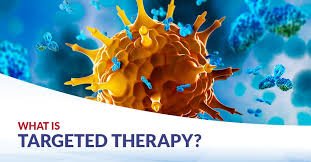The Central Drugs Standard Control Organization (CDSCO) Registered: CRO/MH/2025/000137
Advancing Cancer Care with RCS
Recent advancements in oncology have revolutionized our understanding, diagnosis, and treatment of cancer, offering new hope for patients around the world. Clinical research has played a pivotal role in driving these breakthroughs, enabling the development of personalized and targeted therapies that provide more effective and less invasive options than traditional treatments. When it comes to clinical studies, RCS remains at the forefront of conducting end-to-end clinical research in all areas of Oncology. With our tailored solutions in conducting the trials (from P1-P4), the pharma sector and the patients have benefited remarkably from our focused approach. Our innovations are transforming the landscape of cancer care, offering promising outcomes for those who once had limited options.
3/4/20254 min read
Oncology Insights: Find a promising future with RCS
Oncology has witnessed significant progress in areas such as immunotherapy, where treatments harness the body’s own immune system to fight cancer, and precision medicine, which customizes therapies to the genetic makeup of both the patient and the tumor. Additionally, early detection techniques, such as liquid biopsy, are allowing for earlier, more accurate diagnoses, improving survival rates and enabling proactive treatments. Furthermore, groundbreaking advances in drug development are introducing novel therapies that target cancer cells more precisely, minimizing damage to surrounding healthy tissues and reducing side effects.
At RCS, we conduct comprehensive and rigorous clinical studies on the drugs, therapies, and devices that you innovate, ensuring that each breakthrough undergoes the most thorough evaluation. We have GLP-certified laboratories and a major pool of 700 clinical trial sites pan-India in addition to a range of regulatory approved sites globally. Our research encompasses small to large molecules investigations, pharmaceuticals, biopharmaceuticals, nutraceutical and medical devices. We have experienced GCP trained PIs and site staff who ensure that the clinical research is designed to assess both efficacy and safety, helping to bring cutting-edge treatments from the lab to the clinic with confidence. This multi-faceted progress not only enhances the quality of life for cancer patients but also opens new pathways for the prevention, early detection, and personalized management of various cancer types, ultimately transforming patient outcomes and reshaping the future of oncology care.
Let’s read further to find out more!
Immunotherapy
Immunotherapy continues to be a potential advancement in cancer treatment. Immunotherapy works by boosting and harnessing the power of the immune system to more effectively recognize and eliminate cancer cells. This targeted approach has shown remarkable promise in treating a wide range of cancers, including melanoma, breast cancer, pancreatic cancer, prostate cancer, colorectal cancer, lung cancer, leukemia, etc., offering new hope for patients.
Latest Advances in Immune Therapy:
· Recent clinical trials have demonstrated the effectiveness of immune checkpoint inhibitors, such as pembrolizumab and nivolumab, in treating cancers like melanoma, non-small cell lung cancer (NSCLC), and bladder cancer. These drugs work by unleashing the body’s immune system to recognize and attack cancer cells.
· Development of CAR T-cell therapies has come out to be a boom, particularly for hematological malignancies like leukemia and lymphoma. Researchers are now expanding the use of CAR T-cell treatments to solid tumors, a challenging area of oncology, with promising early-stage results.


Targeted Treatment
Targeted therapies in cancer are a revolutionary approach that focuses on precisely attacking the molecules behind cancer cell growth, offering a more personalized and effective treatment option. They have become a cornerstone of cancer treatment because of precision and significantly fewer side effects as compared to traditional chemotherapies.
Significant advances:
· Inhibitors targeting the EGFR mutation in NSCLC or HER2 in breast cancer have shown substantial improvement in patient outcomes.
· Unique agents targeting the tumor microenvironment, which influences tumor growth and metastasis, are being tested in clinical trials, aiming to disrupt the ability of tumors to grow and spread.
As a trusted CRO partner, we at RCS provide the expertise and resources needed to accelerate the development of these innovative therapies, ensuring they reach patients faster, with greater precision, and a higher chance of success. By embracing the power of targeted therapies, we help the pharma sector and researchers to drive the future of cancer treatment and bring hope to those facing cancer worldwide.
Precision Medicine and Genomic Research Leading Cancer Care
The integration of genomics into clinical research has fundamentally transformed cancer treatment through the emergence of precision medicine. By analyzing an individual’s unique genetic profile, clinicians can now design therapies that are not only more likely to be effective but also minimize the risk of adverse effects. This approach provides tailored strategies that target specific molecular alterations in each patient’s tumor.
Additionally, the identification of mutations such as KRAS G12C in lung cancer and BRAF mutations in melanoma has paved the way for targeted drugs like sotorasib and encorafenib, respectively. These drugs or their improvised versions can be clinically tested throughout the network of clinical sites available with RCS. <>Our experienced PIs take every possible measure to protect patient’s safety and assess drug’s efficacy with patient-centric approach, meanwhile following high ethical standards.
How can Early Detection and Screening Help with the use of AI?
At RCS, we recognize the transformative potential of advancements in early cancer detection and cutting-edge technologies that are reshaping the future of oncology. Methods like liquid biopsy are being considered as pioneering techniques, offering the ability to detect cancers at their earliest and most treatable stages, further enhancing patient outcomes significantly. Liquid biopsy technology is non-invasive and highly promising method for cancer diagnosis and monitoring. It analyses the circulating tumor DNA (ctDNA) or other tumor-derived biomarkers found in blood samples, offering a less invasive method to obtain molecular information about a patient's cancer.
RCS also embraces the power of artificial intelligence (AI) and machine learning in oncology clinical research. Our AI-powered analysis of imaging data helps in unravelling the complexities in tumor growth, thus providing more accurate predictions. Furthermore, since AI-driven platforms are being increasingly adopted for enhancing the development of personalized treatment strategies worldwide— as your trusted CRO partner, RCS is committed to accelerating the integration of these groundbreaking technologies, helping to bring faster, more precise treatments to the market, ultimately transforming the landscape of cancer care.
Conclusion
Clinical research in oncology is advancing at an unprecedented pace, unlocking innovative therapies, cutting-edge detection methods, and a deeper understanding of cancer biology. With breakthroughs in immunotherapy, precision medicine, and early detection technologies, the future of cancer treatment is rapidly becoming more personalized, effective, and accessible, offering renewed hope to patients worldwide. At RCS, we are proud to be your trusted partner in pre-clinical and clinical research, delivering tailored


Subscribe to our newsletter
Quick Links
Socials
Copyright © 2025. RCS - RamAayanaM Clinical Solution. All Rights Reserved
Registered office
Diva East, Thane, Maharashtra, India
Miami, FL, USA
Branch office
Vikhroli West, Mumbai, Maharashtra, India
Vila Franca de Xira, Portugal
Madrid, Spain
Contact us:
+91-8979335208
+91-9820507220
E-mail:
info@rclinicalsolution.com
bd@rclinicalsolution.com
